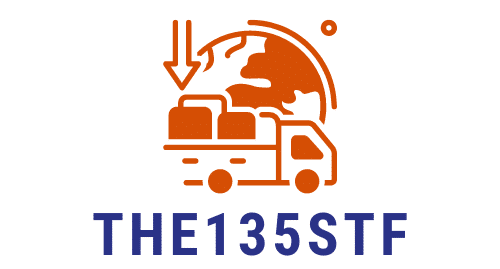The realm of cybersecurity is undergoing a revolution, thanks to the advent of quantum computing and quantum cryptography. As we progressively transition from classical systems to quantum systems, there’s an increasing need to understand the implications for our digital world’s security. This article delves into how quantum encryption is reshaping cybersecurity, the threats it poses and the opportunities it presents, and the role of key quantum technologies in ensuring a secure digital future.
The Potential of Quantum Cryptography
Quantum Cryptography is the application of quantum physics principles to the realm of cryptography. It introduces a new dimension to cryptography, enabling unbreakable encryption, and therefore, a higher level of data security.
Dans le meme genre : What’s the Next Step for AI in the Evolution of Smart Home Assistants?
Unleashing the Power of Quantum Key Distribution (QKD)
Quantum Key Distribution (QKD), an essential component of quantum cryptography, uses quantum mechanics to facilitate secure communication. Employing the principles of superposition and entanglement, it allows the safe transmission of a cryptographic key between two parties.
At the heart of QKD is the ability to detect eavesdropping. If a third party intercepts the quantum key, it disturbs the state of the key, alerting the sender and receiver about a potential security breach. This feature of QKD enables absolute security in data transmission, making it an attractive choice for communications that need high-level security, like financial services or military communications.
A découvrir également : How Are AI-Powered Tools Transforming Gene Editing Research?
QKD has the potential to revolutionize traditional encryption methods. Classical encryption techniques, including RSA and AES, rely on the difficulty of factoring large numbers, a task that is difficult for classical computers but can be easily accomplished by quantum computers. QKD, on the other hand, is immune to such attacks, providing a robust defense against emerging quantum threats.
The Threats Posed by Quantum Computing
While quantum computing offers extraordinary capabilities, it also presents significant cybersecurity threats. The very power that enables quantum computers to solve complex problems quickly is a potential threat to classical encryption systems.
Quantum Computing: A Double-Edged Sword
A large-scale, fully functional quantum computer can crack classical encryption algorithms in a matter of seconds. The ability of quantum computers to process vast amounts of data simultaneously, thanks to superposition, and to share information instantly, due to quantum entanglement, allows them to outperform classical computers.
This poses a massive challenge to our existing cybersecurity infrastructure, which relies heavily on classical encryption. A potential quantum attack could decrypt sensitive information, from credit card details to top-secret government files, currently thought to be secure. Consequently, the advent of quantum computing necessitates the development of quantum-resistant algorithms that can withstand quantum attacks.
Quantum-Resistant Algorithms: The Future of Cybersecurity
Quantum-resistant algorithms, also known as post-quantum cryptography, represents a significant milestone in the journey towards quantum-safe security. These are cryptographic algorithms thought to be secure against an attack by a quantum computer.
Ascertaining the Future with Quantum-Resistant Algorithms
Given the potential threat of quantum computing to classical cryptographic systems, there is a surge in the research and development of quantum-resistant algorithms. These algorithms are designed to protect data not only against current threats but also future quantum attacks.
Quantum-resistant algorithms leverage mathematical problems that are hard for both classical and quantum computers. These problems typically involve certain algebraic structures, such as lattices, that remain difficult to crack even with quantum computing’s power.
The Road Ahead: Quantum Encryption and Cybersecurity
The digital realm is in flux, and the security that once seemed unassailable is now under threat. Quantum encryption, with its potential for providing unbreakable security, offers a potent solution.
Quantum Encryption: A Safer Digital Future
Adopting quantum encryption will require significant changes in our cybersecurity infrastructure. This includes implementing quantum-resistant algorithms and adopting quantum key distribution systems. There’s no doubt that the process will be complex and challenging.
However, the potential benefits of quantum encryption are undeniable. In a world where data breaches are becoming commonplace, the guaranteed security offered by quantum encryption is a game-changer. It promises a future where our digital lives are secure from all forms of threats, classical or quantum.
Despite the challenges, the steady march of progress is inexorable. Quantum encryption is not just a fanciful notion; it’s here, and it’s growing. As we continue to grapple with the implications of this transition, one thing seems certain: the frontiers of quantum encryption for cybersecurity are expanding, and they hold the key to a secure digital future.
The Application of Quantum-Resistant Algorithms in Cybersecurity
In the face of future quantum threats, the application of quantum-resistant algorithms is becoming increasingly crucial in cybersecurity. These algorithms, also known as post-quantum cryptography, are designed to resist the powerful computational abilities of quantum computers.
Addressing Cyber Threats with Quantum-Resistant Algorithms
The development of quantum-resistant algorithms is a response to the potential threats posed by quantum computing to classical encryption methods. These algorithms employ complex mathematical problems that even quantum computers find hard to crack, thus providing a robust defense against cyber threats.
The use of algebraic structures, such as lattices, in these algorithms further enhances their security. These structures are resistant to both classical and quantum computing attacks, making them a suitable choice for future-proof encryption.
Moreover, the adoption of quantum-resistant algorithms does not necessitate the use of quantum computers. They can be implemented on classical systems while still providing quantum-safe encryption, which is a significant advantage for their widespread adoption.
As the race to build large-scale quantum computers heats up, so does the need for quantum-resistant algorithms. Cybersecurity firms, tech giants, and governments are investing heavily in the research and development of these algorithms. The goal is to achieve a seamless transition from classical to quantum-safe cryptography, thus ensuring continued data security in the post-quantum era.
Conclusion: Navigating the Quantum Revolution in Cybersecurity
The advent of quantum computing is undoubtedly a double-edged sword for cybersecurity. On one hand, it offers the prospect of unbreakable encryption through quantum cryptography and quantum key distribution. On the other, it threatens to break classical encryption methods, posing a significant risk to data security.
Quantum Encryption: A Beacon of Security in the Digital Age
The transition to a quantum-safe digital world is far from straightforward. It will require considerable changes to existing cybersecurity infrastructure, including the adoption of quantum-resistant algorithms and the integration of quantum key distribution systems. The complexity and cost of this transition should not be underestimated.
However, the potential benefits of quantum encryption are undeniable. It provides a level of data security that far surpasses that of classical systems, thus offering a robust defense against cyber threats. In an era where data breaches are increasingly common, having an unbreakable encryption system is pivotal.
As we navigate this quantum revolution, it’s clear that the frontier of quantum encryption for cybersecurity is expanding. With the growing threat of quantum computing, the need for quantum-safe security solutions has never been more urgent. While the road ahead may be challenging, the promise of a secure digital future offered by quantum encryption is worth the journey. As we delve further into this new frontier, it’s clear that the future of cybersecurity lies in quantum encryption.






